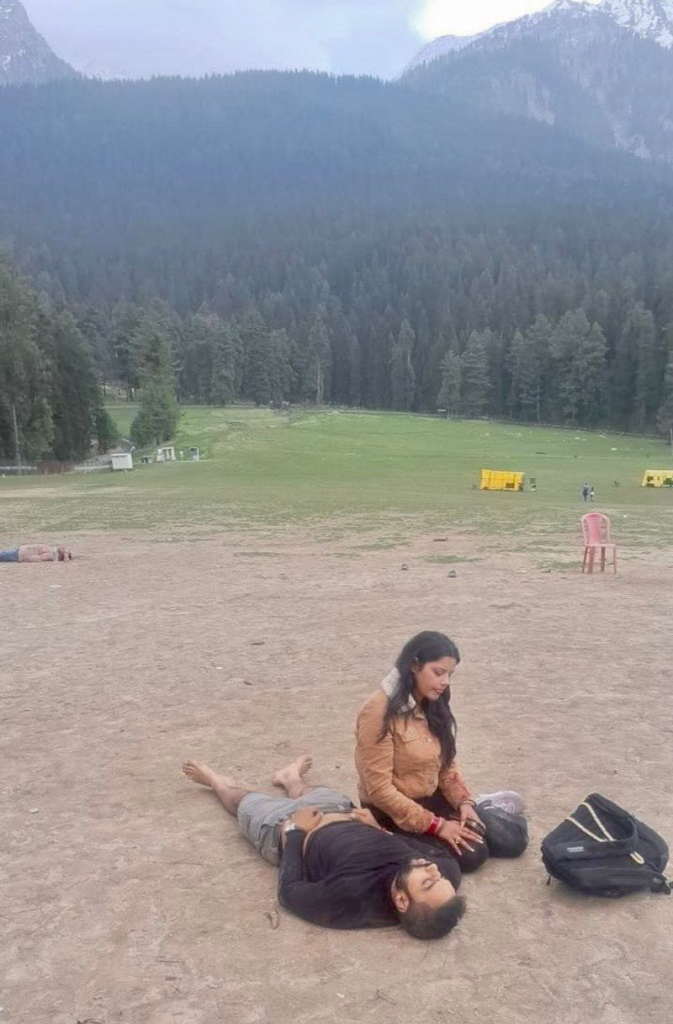The decision to suspend the Indus Waters Treaty the first time in 65 years should convey India’s serious concern to the international community.

Lt Gen Syed Ata Hasnain Retd

As condemnation of the dastardly Pahalgam terrorist attack pours in from home and abroad, it is increasingly clear that the target of the planners in Pakistan was to revive the relevance of Pakistan in J&K, which has been progressively lost since the abrogation of Article 370 in August 2019.
Pahalgam was not just another tragic incident — it marked a strategic pivot in the terror calculus across Jammu and Kashmir.
The move from the south of Pir Panjal back to the heart of the Kashmir Valley raises serious questions about the motives behind this renewed aggression and how India must respond. This needs a full explanation and analysis.
Fortunately, the early return of the Prime Minister from Saudi Arabia and the convening of the Cabinet Committee on Security (CCS) with its clear and perceptive message has set the ball rolling as far as the response is concerned; and to respond we have to, it’s a national need.
Based upon the emerging normalcy in Kashmir since 2019, made possible by control on terrorist infiltration, neutralisation of fresh recruitment, paralysis of overground worker networks and dismantling of financial conduits, it has become increasingly more difficult for Pakistan to conduct effective sponsored terrorist strikes in the Valley. These were reduced to the targeting of some migrant labourers, off-duty police personnel or Territorial Army personnel, with an aim of making news to remain relevant.
With some probing in the Pir Panjal South (Poonch-Rajouri-Jammu belt), Pakistan discovered the voids in security forces’ deployment due to the vacation of some areas by the army for the deployment of troops in Ladakh. That is how, in 2023-24, the focus of operations suddenly shifted to this area, with a series of terror strikes by well-trained and suspected regular elements of the Pakistan army mixed with terrorists.
The strike on the bus carrying pilgrims to the Mata Vaishno Devi shrine on May 9, 2024 and the Machedi attack on the 22 Garhwal convoy on July 9, 2024 indicated the shift to the Reasi and Jammu sector. Of late, the focus of operations had shifted to Kathua to keep the proverbial relevance active.
The terror strike at Pahalgam was probably planned, considering the sudden rush of tourists to the Valley and the availability of the well-trained and experienced terrorist group in the Pir Panjal area. No infiltration of special terrorists was needed; all it required was the movement of this group through the transit routes available in the Warwan Valley to reach Kishtwar North.
One cannot be sure whether this was timed with General Asim Munir’s disgraceful speech to the Pakistani diaspora, but the visit of US Vice-President JD Vance, which too came at short notice, was almost god-sent for the Pakistani deep state. In proxy terror operations by a nation, it always looks for such moments which can disturb the good times in the target nation. It’s also an opportunity to use the headlines of that visit alongside the headlines of a big terror attack to message the world on the capability to disrupt and remain relevant to the area that is being targeted.
The Kashmir Valley’s symbolism and strategic optics hold greater international visibility and emotional resonance for Pakistan than any other location. Attacks in iconic locations like Pahalgam grab more media traction — domestic and international. Tourism in Kashmir was showing record growth — a peaceful Valley undercuts Pakistan’s propaganda. Attacks aim to instill fear and reverse economic momentum. To any common understanding, the dilution of economic parameters in Kashmir should be negatively viewed by the Kashmiri population; and it does happen that way.
However, it has always been Pakistan’s mistaken belief that the people of Kashmir will tolerate all this for the love of Islam and the affinity with Pakistan. From 1948 to 1989, in every conflict, Pakistan’s strategy alluded to this belief. In fact, in 1965, during Operation Gibraltar, the concept was an eventual uprising by the Kashmiri population in support of the ‘Razakars‘ who had been infiltrated. It never happened. A miniscule minority, further dwindling, may have supported the separatist cause and remained misled for some years after 1989, but it is all coming back to a fondness for India, with Pakistan an anathema.
There is a public demand for retribution for the blood of innocent Indians. There are three things that are important for us as a nation.
First, we cannot allow ourselves to be impacted by Pakistan’s proxy actions which intended targeting normalcy and unity of India. The aim and intent of this act has been crystal clear. Hence, unity among all segments of India must remain unaffected and special efforts towards that are a must.
Second, the security forces must endeavour to restore the faith of the nation in their ability to secure J&K, just like they have all these years. We cannot allow the Amarnath yatra to get affected by the inherent fear that may have been planted in the hearts of prospective yatris.
Third, and very important, is the fact that the CCS met immediately after the Prime Minister’s return and took stock. The decisions taken are absolutely in line with anyone who has an idea of conflict management. There is nothing even remotely knee-jerk in the decisions.
The decision to suspend or hold in abeyance the Indus Waters Treaty the first time in 65 years should convey India’s serious concern to the international community. The effect may yet take time, but Pakistan, a water-challenged country, cannot afford to have its waters cut off.
The other measures, such as the reduction of High Commission staff and recall of defence attaches are classic diplomatic measures. The revocation of any travel at all through the Attari border will affect the common man no doubt, but at times, the population too must be pressured to put reverse pressure on its government.
The most important aspect of the decisions of the CCS is the elongated window of opportunity which has been created. That should help keep the Pakistani state on tenterhooks. Already, some reserve formations would have been deployed from Mangla. Let them remain mobilised forever, awaiting the inevitable hard response, which will come sooner than later.
Lt Gen Syed Ata Hasnain (Retd) is former GOC Kashmir based 15 Corps & Chancellor, Central University of Kashmir.
A























































































































